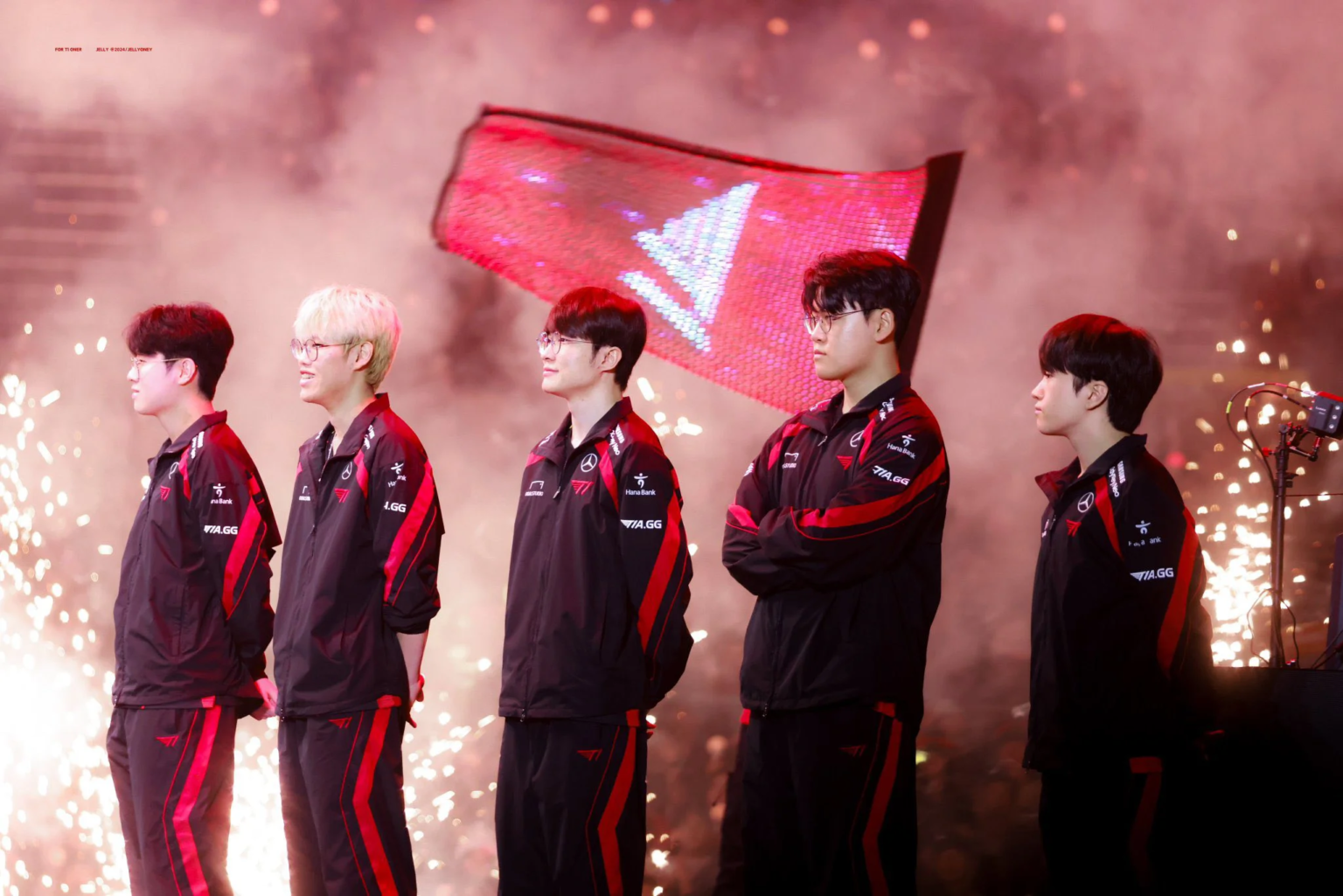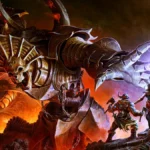The world of esports is abuzz with the announcement of the Esports World Cup (EWC), a monumental tournament set to take place in Riyadh, Saudi Arabia this summer. With a prize pool exceeding a staggering $60 million – eclipsing the previous record set by The International (DOTA 2) 2021 at $40 million – the EWC promises to be a landmark event. This article delves into the details of the tournament, the participation of powerhouse organization T1, and the intriguing case of legendary player Faker.
A Tournament Like No Other: The Esports World Cup
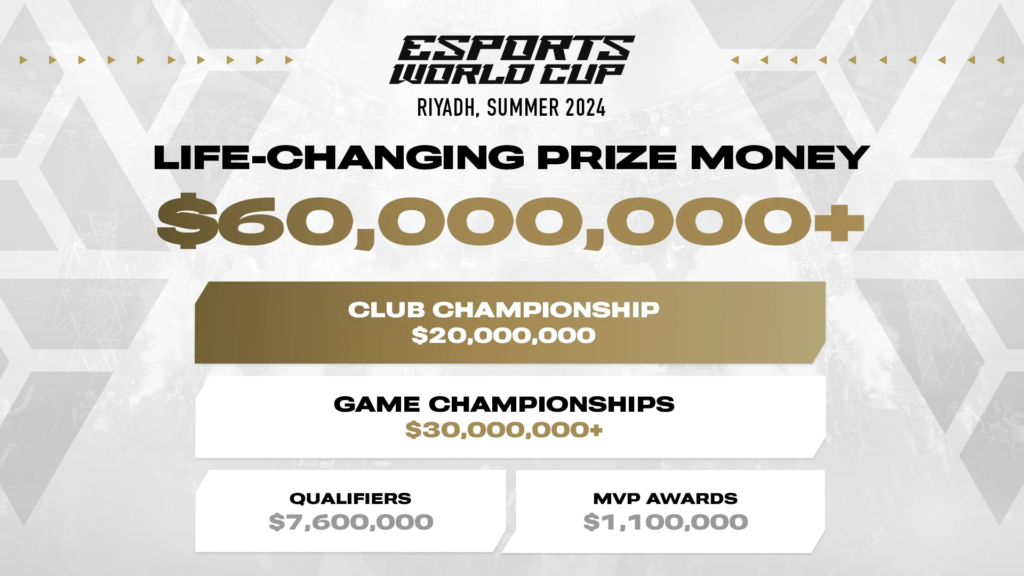
The EWC boasts a unique format, encompassing a diverse range of esports titles. League of Legends (LoL), a titan within the esports landscape, is confirmed to be one of the featured games. The sheer scale of the tournament is undeniable, with the aforementioned record-breaking prize pool acting as a testament to its ambition. This substantial sum signifies a potential turning point for esports, mirroring the growing recognition and investment it receives on a global scale.
T1: A Powerhouse on the EWC Stage (or are they?)
Adding fuel to the excitement surrounding the EWC is the inclusion of T1, a globally renowned esports organization. Their presence shouldn’t come as a surprise – T1 has consistently been at the forefront of competitive gaming, particularly in League of Legends. Their roster boasts legendary players like Faker, widely considered the “Greatest Of All Time” (GOAT) in LoL.
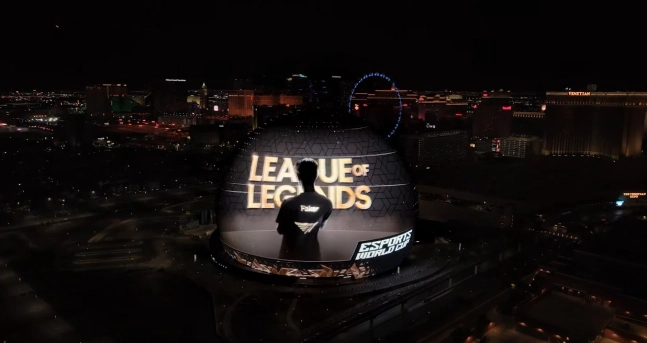
However, a wrinkle appears in the EWC narrative with the inclusion of Faker in the promotional materials. While T1’s participation in the EWC is a possibility, the question of their team composition and Faker’s involvement remains unanswered. Here’s why:
Scheduling Conflicts: A Thorn in the Side of Participation
The EWC’s proposed timeframe, spanning from June to September, presents a significant obstacle for T1. This period coincides with the prestigious League of Legends Champions Korea (LCK) Summer Split and the pinnacle event of professional LoL, the World Championship (Worlds). Both LCK and Worlds are paramount events for T1, demanding their full focus and best possible lineup.
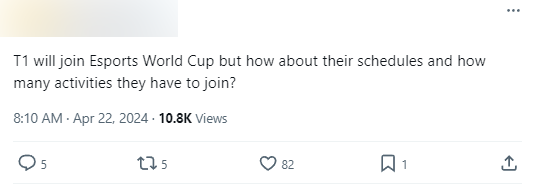
The clashing schedules raise concerns about T1’s commitment to the EWC. Would they field a weakened squad, potentially jeopardizing their chances in both tournaments? Or would they prioritize established competitions like LCK and Worlds, opting out of the EWC entirely?
Finding a Solution: Lessons from the Past
The Asian Games 2023 in Hangzhou might offer a potential solution. This multi-sport event incorporated esports titles and adopted a format where each game had a dedicated competition window. This approach mitigated schedule conflicts and ensured the participation of top players. Implementing a similar format could be a viable option for the EWC, enabling T1 and other teams to compete with their strongest lineups without sacrificing their performance in other crucial tournaments.
Beyond the Hype: Balancing Commerce and Competition
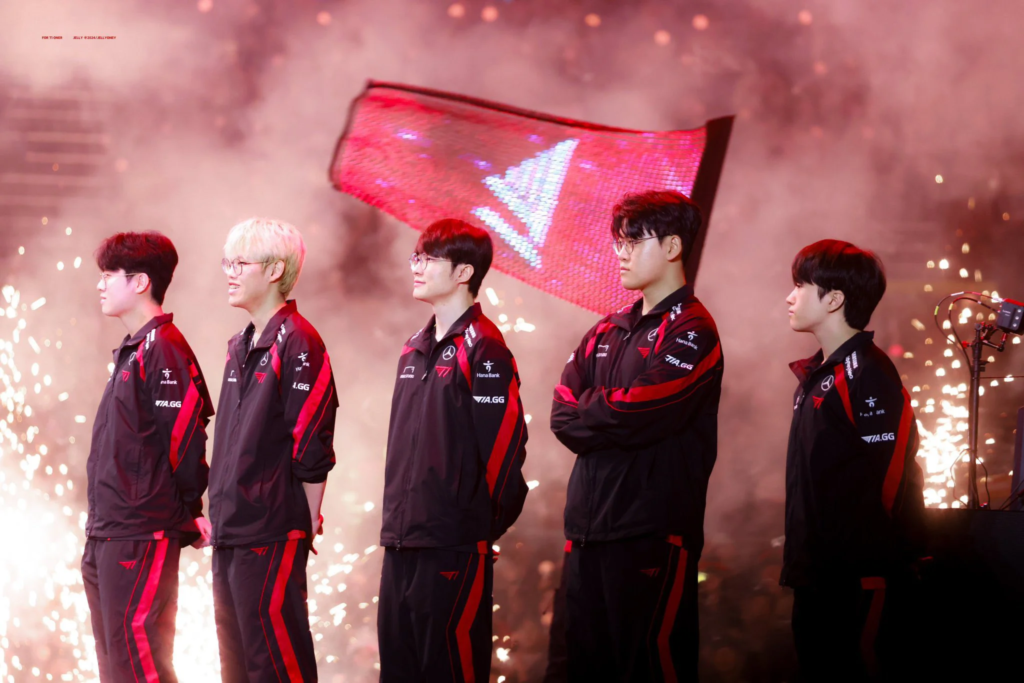
Faker’s appearance in the EWC promotional materials undoubtedly serves a marketing purpose. His inclusion generates excitement among fans, drawing attention to the EWC. However, it’s crucial to distinguish between promotional strategies and the reality of team participation.
A Promising Tournament with Questions Awaiting Answers
The EWC’s arrival on the esports scene signifies a significant step forward. Its massive prize pool reflects the growth and recognition esports has achieved. While T1’s participation would undoubtedly elevate the tournament, the scheduling conflicts pose a serious challenge. Finding a solution like the Asian Games format could pave the way for T1 and other leading teams to showcase their best without disrupting the competitive landscape. Ultimately, the EWC holds immense potential, but the questions surrounding participation and scheduling remain to be addressed before the stage lights truly ignite.

